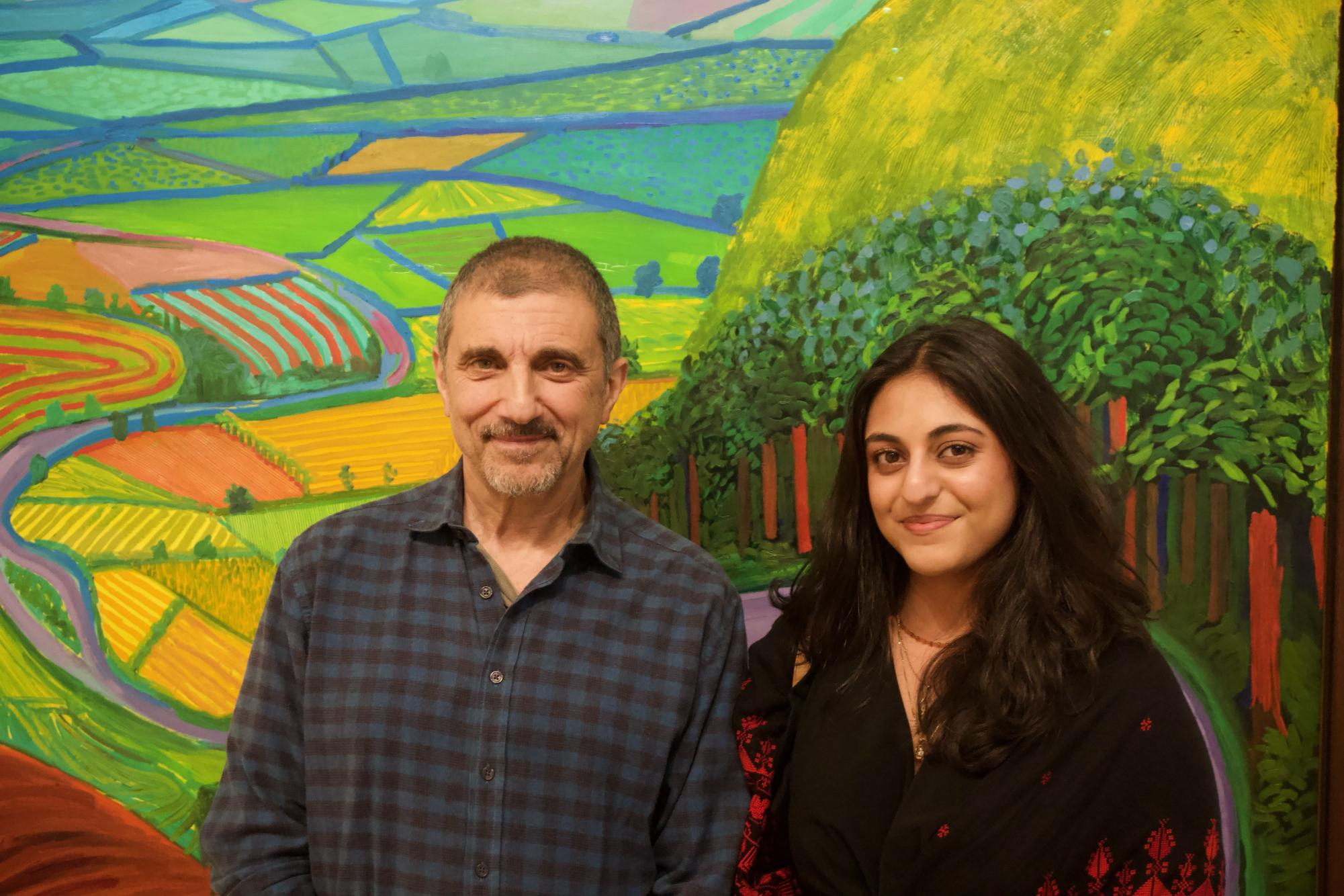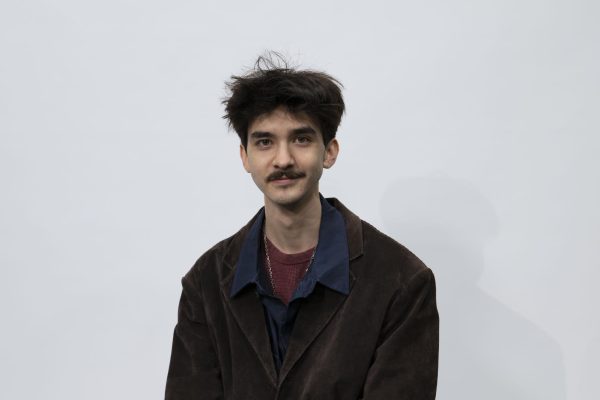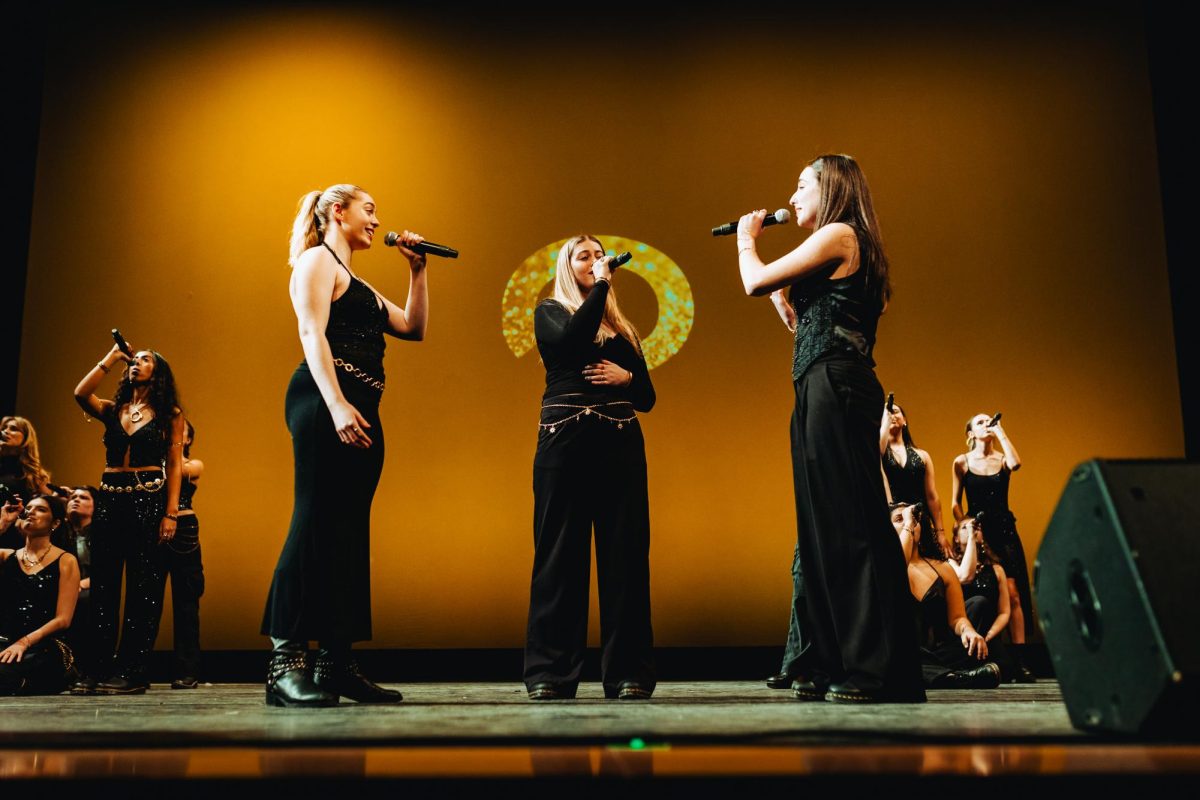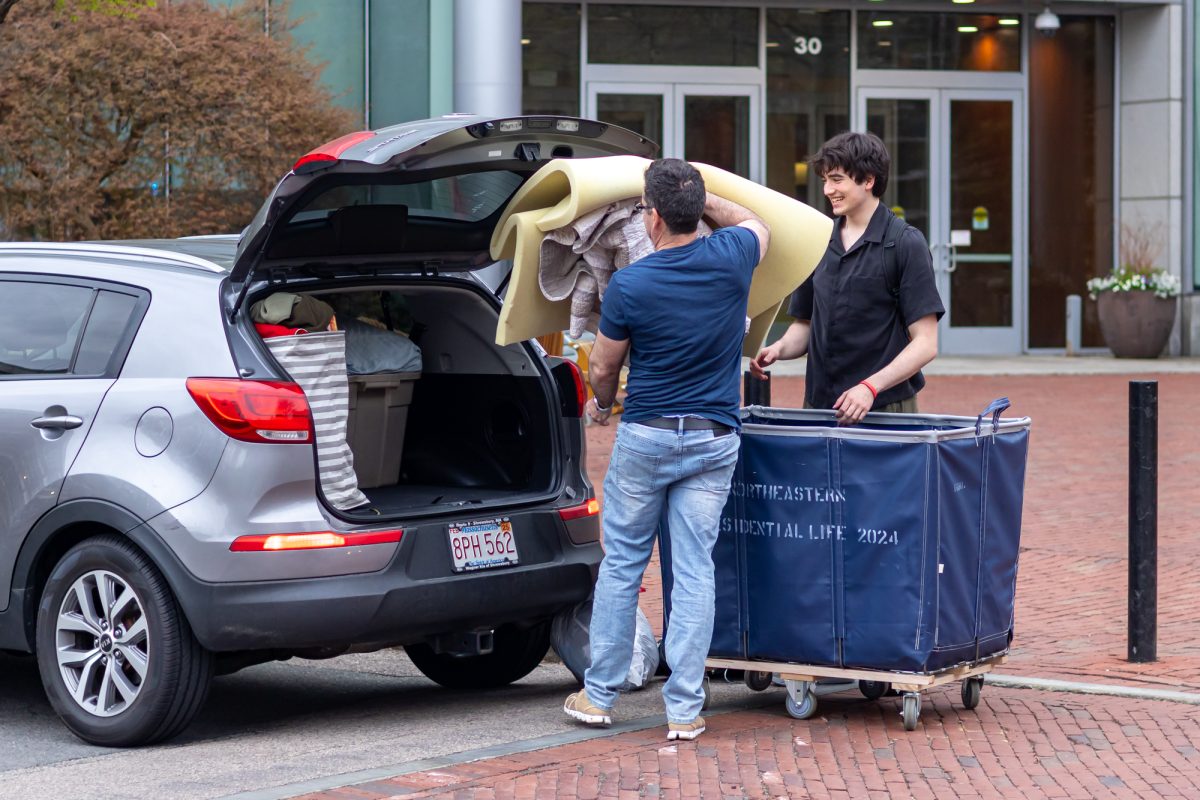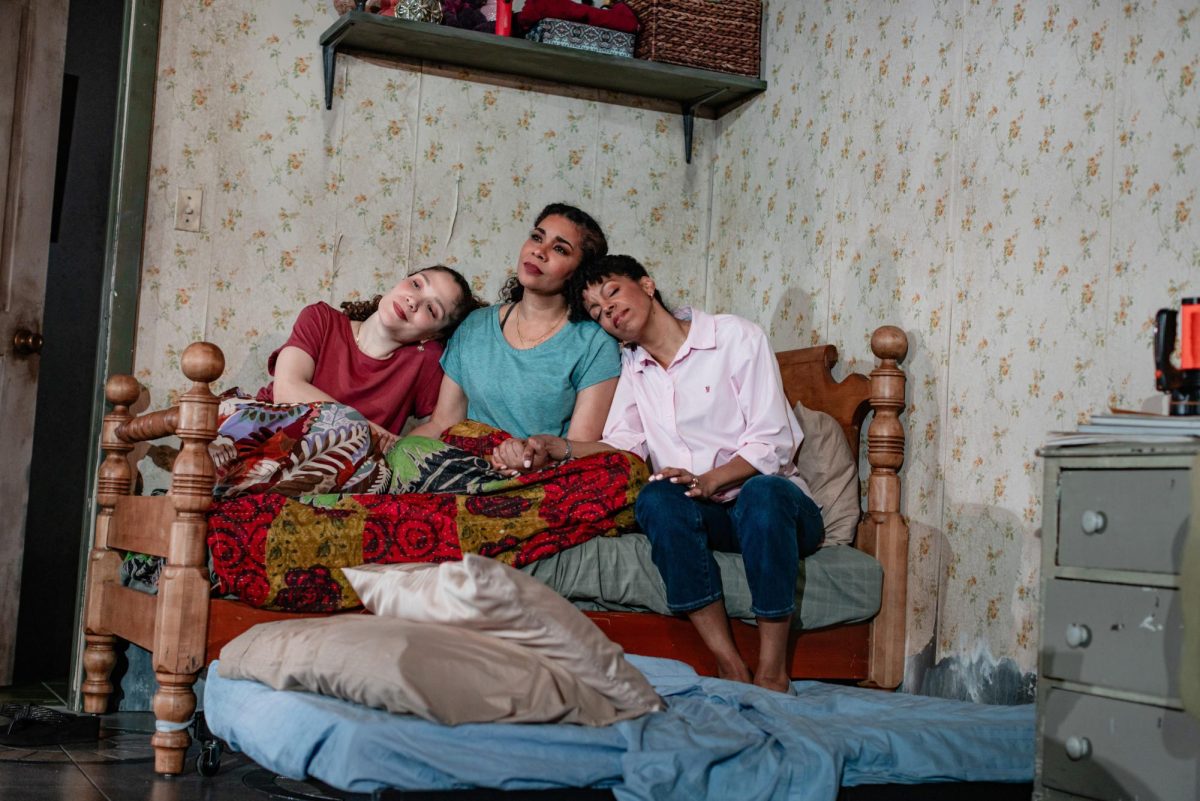A sold-out theatre awaited the last film after the weekend-long Boston Palestine Film Festival, part of which was held at the Museum of Fine Arts, or MFA. Now in its 18th edition, the festival continues to feature Palestinian filmmakers during the month of October, this year running from Oct. 18 to 27.
“As Israeli aggressions against our families continue to escalate in the West Bank and Lebanon, we are hosting this festival, which is here as a form of resistance to Palestinian dehumanization, erasure and extermination,” Director of Programming for the festival Michael Maria said before the final film showing Oct. 27. “From as far as Boston, the festival is our expression of Palestinian existence and is a safe space for community gathering, community mourning and re-interjecting as we appreciate these cinematic works of art and visualize collectively a free Palestine.”
More than a year after Oct. 7, 2023, the festival has seen increased attention and examination. Due to security concerns, as well as grief in the local Palestinian community, the 2023 festival was moved online and then later postponed to January. The first return screening earlier this year sold out quickly, and the following films were also nearly at capacity.
“Ever since the genocide in Gaza began, real community awareness over Palestinian experience has expanded beyond what our core audience has been — there’s been huge community support and interest and energy to come out to the screenings,” Maria said. “This past weekend, we’ve sold out two of our screenings, and the others have been close to 200 per screening, which is really good in our book.”
The Boston Palestine Film Festival has partnered with the MFA since its inception, and the festival’s organizers say they are happy to be on the same page and to continue collaborating with the institution. This year, films also screened at the Coolidge Corner Theatre, the Brattle Theatre, and the MassArt Design and Media Center, as well as the Regent Theatre in Arlington for the first time, in hopes of reaching wider and more diverse audiences.
“I feel like I needed this festival,” Brown University student Maha Temre said. “I needed to see that other people cared and that other people wanted to engage — it’s the Boston Palestine Film Festival at the MFA, that says something.”
The series, which featured Palestinian short films, documentaries and full-length films, was largely centered on themes of family and love during displacement and war.
Maria said program staff have been hearing a lot of positive feedback about the films and that this year, every film is excellent in its own way.
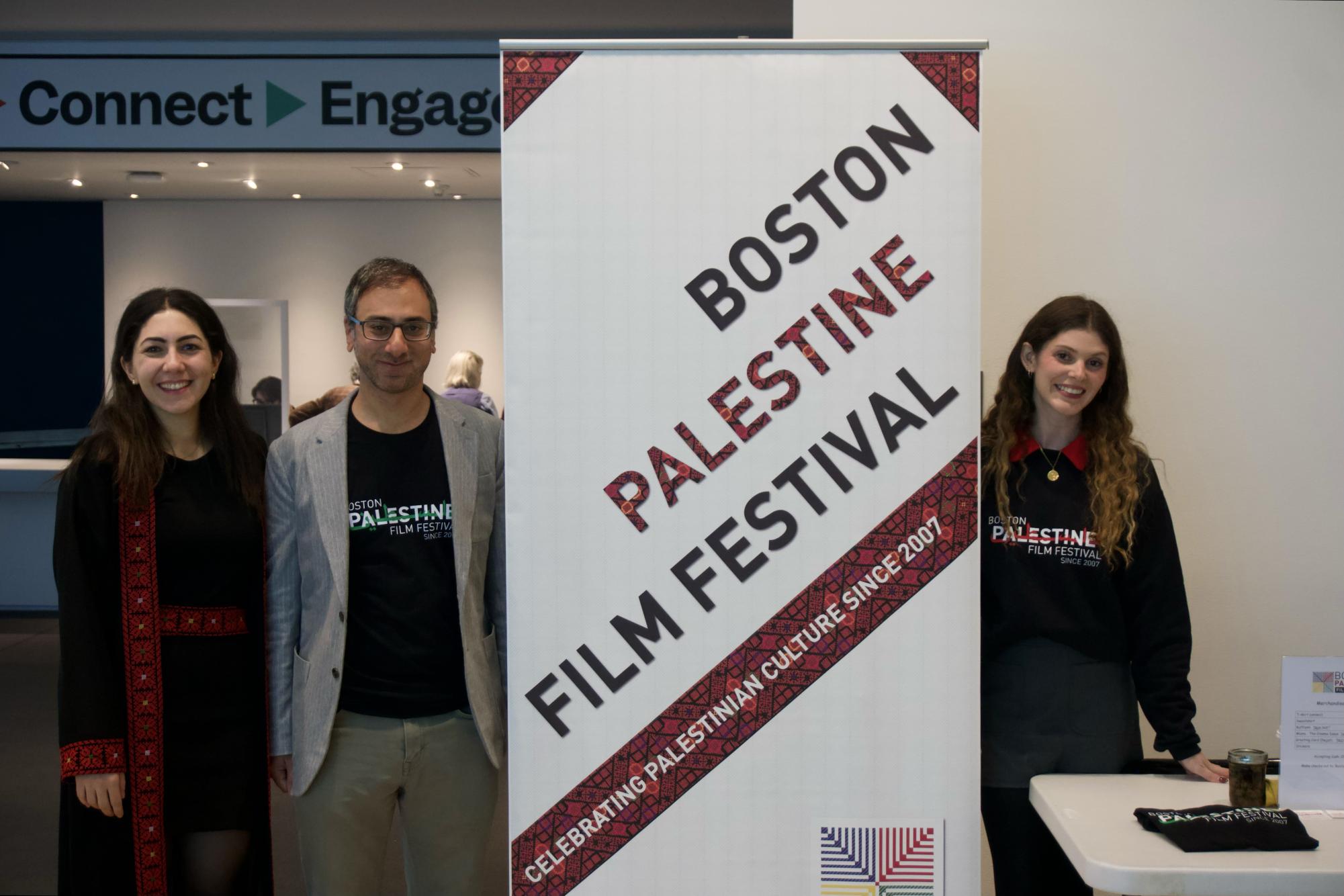
“Mawtini (My Homeland)” by Fateema Al-Hamaydeh Miller follows a young Palestinian woman and an older Indigenous woman who fight their building management to start a guerrilla garden and make it to harvest.
“When they bury the fig plant at the end, I knew it was gonna grow because it’s a well-known quote that ‘they tried to bury us, but they didn’t know we were seeds,’” said Ahlam Abuawad, a doctoral epidemiology researcher, after the screening. “It was very beautiful about the coming together of Indigenous people, but that shared trauma is always heartbreaking to see and feel all over again.”
In the second film that day, “Aida Returns” by Carol Mansour, the director’s mother’s last wish was to return to Yafa, and it follows the efforts of her friends and family to make that wish happen after her passing.
“I don’t know if you noticed, [but] a lot of people that were leaving were crying because it was just emotional to be able to return home,” Abuawad said. “So many of us in the diaspora will never be buried there, but I think it’s more so that so many people can’t even go home.”
Abuawad said as soon as she saw the ashes, she knew what they were planning: “It’s wild because they went, they risked their lives to do that.” Abuawad’s grandfather passed away last year in the United States and wasn’t able to fulfill his wish to be buried in Palestine — a story she expressed is a common one.
Abuawad carries reminders of Palestine and her family on her shoulders — her keffiyeh was adorned with green flowers and leaves, which her mother embroidered.
“I think everybody’s finding their own way, their own connection — people bring seeds and plants from Palestine and grow it in their gardens,” Abuawad said. “Carrying on the culture and the knowledge and passing it on from generation to generation — that to me is the most important when you can’t return home.”
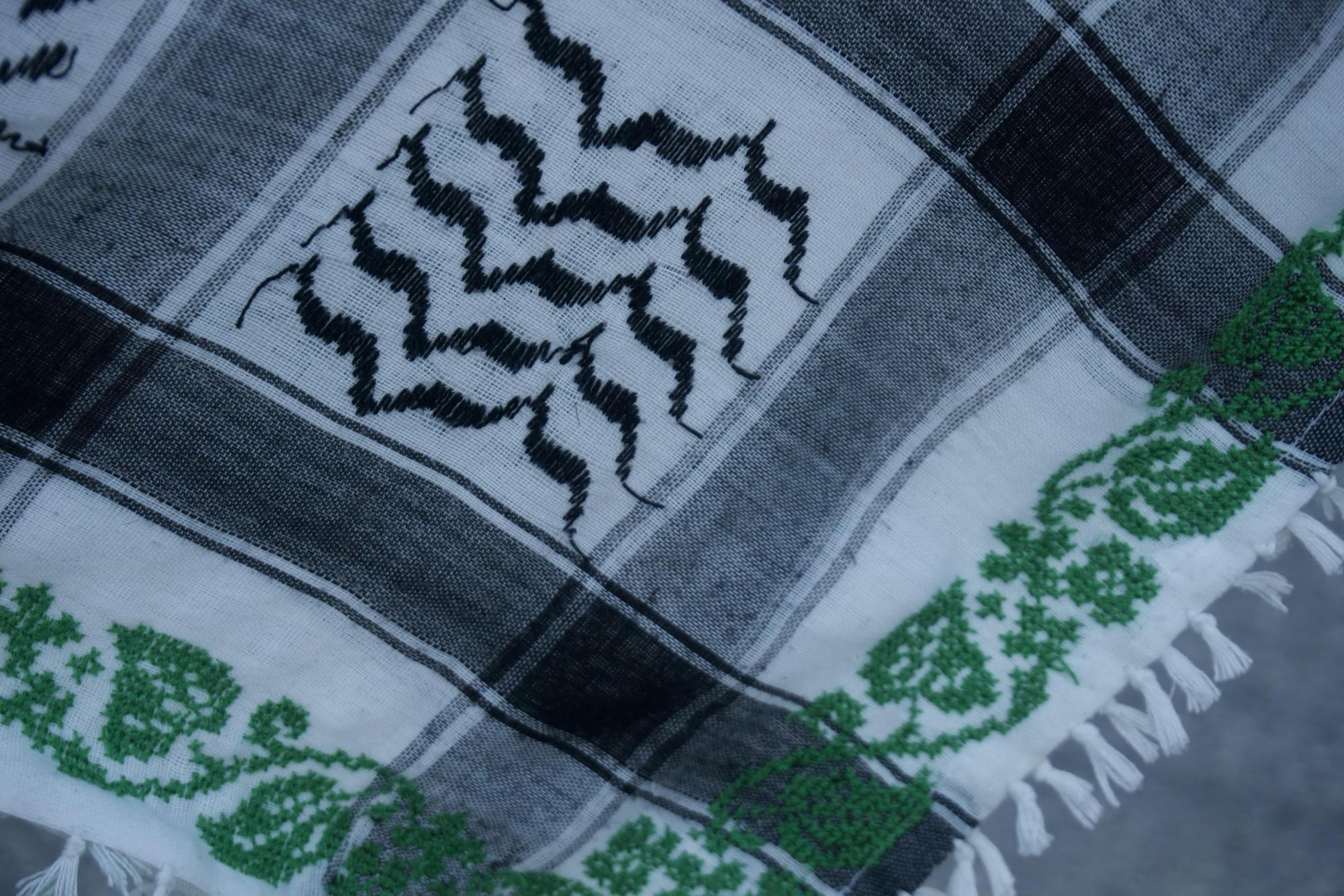
Layla Cable, a Palestinian activist and teacher, has a collection of keffiyehs of every color palette. “Hirbawi, this company that makes these, started making them in multicolors for us, so every year I used to buy one,” Cable said. She buys her daughters a different color every time she visits. While Cable said she’s glad to see more young people taking an interest in Palestinian culture, she emphasized that people should know the history behind it.
“Israelis now are wearing them– they call it Israeli because they’ve taken the clothes,” Cable said. “They stole all the ancient clothes when people were driven out — they made the women take their dresses off.” Cable said many Palestinian artifacts are still held in a Tel Aviv museum. “They said in 100 years, we’re going to announce this is [Israeli] culture.”
One year, Cable said she brought her daughter, who was wearing an antique jacket from Cable’s grandmother, to a talk at Lesley University. Cable recalled an Israeli woman who approached her and praised her daughter for preserving Israeli culture, which Cable retorted was made for her Palestinian grandmother’s wedding. The woman then tried to buy the jacket off of Cable’s young daughter, offering whatever she wanted.
“They’re so involved with their own narrow, bigoted nationalism, they don’t see other people,” Cable said. “I mean, it was a shock to me. When I said, ‘No, you can’t have it,’ she said, ‘But that’s ours.’”
In light of these threats and claims to Palestinian culture, Cable says these kinds of films are key to fair representation of her people.
“I’ve done a lot of Palestinian events and work and talks because I’m Palestinian,” Cable said. “I became a refugee in [19]67, and for a long time, we did a lot of politics and nonfiction, but for Americans who lack a lot of background and history, stories are important.”
Cable became a refugee when she was a college student and didn’t realize the amount of racism toward Arabs, Palestinians, and Muslims she would face in the U.S.
“They kind of made it all about Islam; it’s not — most people are not really religious in the Middle East, it’s like anybody here,” Cable said. “Nobody goes to church, nobody goes to the mosque — it’s majority Muslim, but the culture is the same.”
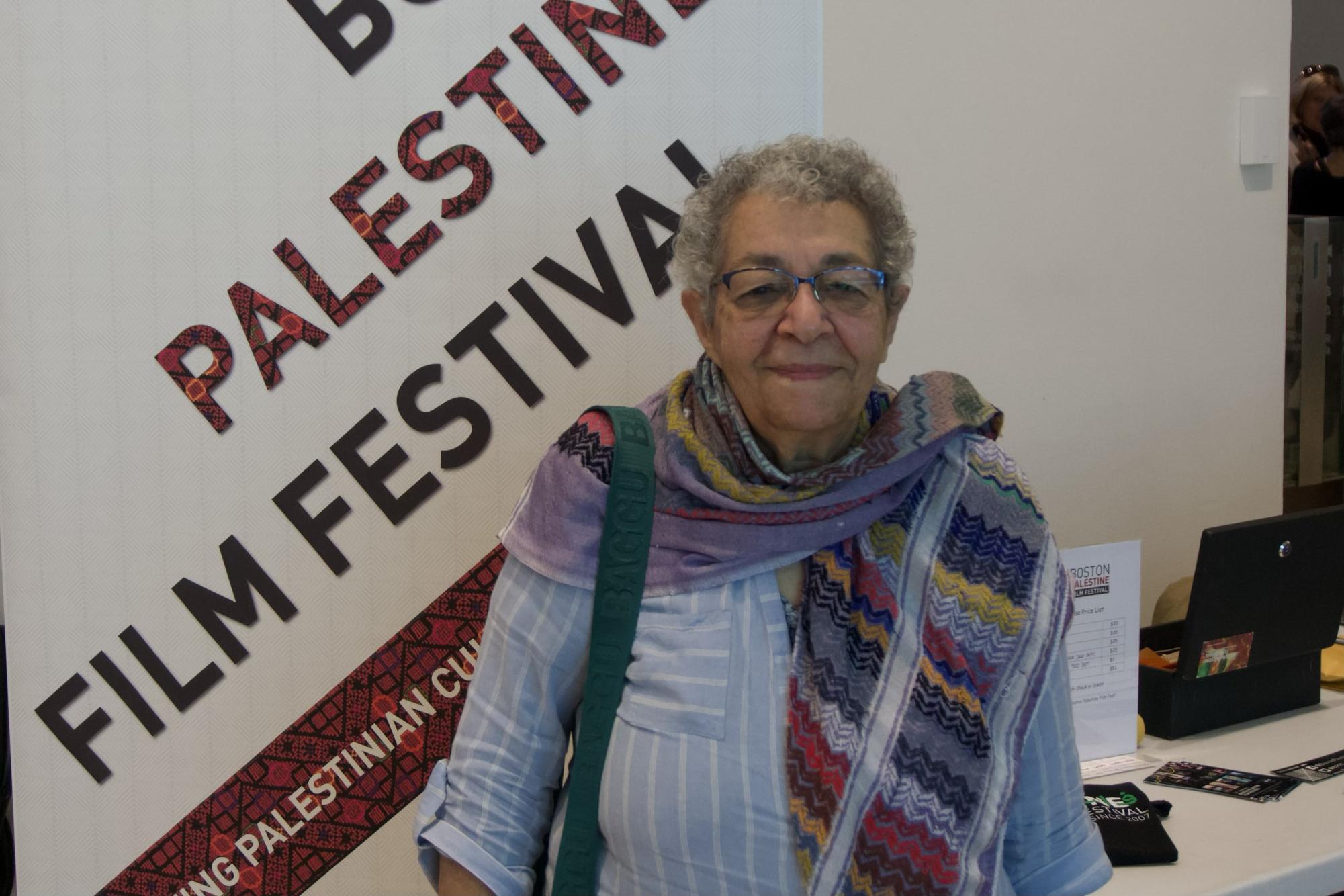
The last film of the MFA portion of the festival, “Bye Bye Tiberias” by Lina Soualem, follows Hiam Abbass, who left Palestine to follow her dream of becoming an actress, as she eventually reconnects with other generations of her family back home in Palestine. The film pieces together family history with the present as the family reflects on the exile, dispossession and hardship that kept them apart and brought them back together.
Laila Ahmed, a writing, literature and publishing major at Emerson College, met Bob David, a cancer and sickle cell support program manager at Boston Medical Center, earlier that day when neither of them were able to get into the last sold-out shows. At the last minute, someone gave up their tickets, and the two discussed the films after they ended.
“I’m Lebanese American, and I’ve never been to those lands, but I could feel my family in there,” David said. “I was just telling Laila — the scenes with the women and men dancing — I mean, there are old videos of my family. That could have been my family.”
“I was sobbing throughout the whole thing. I’m sure my makeup looks a mess, but the film was amazing,” Ahmed said. Ahmed is Muslim and Pakistani American, and she has family and friends in the West Bank. Her family has also experienced refugeehood, so she feels deeply connected to these stories.
“It’s beyond even being a story about Palestine and Lebanon and Syria — everyone with a mother can relate to this story, everybody with a sister who they miss or has had to grieve a person or a place or even a feeling — anyone can relate to this story,” Ahmed said. “To track, specifically, the development of generations of women is something that really resonated with me deeply.”
Many of the festival’s films touched on trauma and loss as well as how families are affected by that loss. “Losing your homeland, it becomes part of the consciousness of the family, the extended family,” David said. “In the movie, the mother was often looking off, looking away. The more one gets caught up in that, the less available that person is as a parent or as a sibling, and it’s clear so many Palestinians are living with that loss.”
Since Oct. 7, 2023, Israel has displaced 1.9 million of the total 2.2 million population of Gaza, and at least 43,600 people have been killed, according to Gaza’s Health Ministry. Thousands more are believed to be under the rubble, and the entire population has been subjected to catastrophic food insecurity and other health hazards for over a year. A UN Special Committee announced Nov. 14 it had found Israel’s warfare methods consistent with characteristics of genocide.
Now, as the conflict expands, in Lebanon more than 1.2 million are displaced and at least 3,386 have been killed by Israeli forces. “As we talk about Israel’s genocide in Gaza, its occupation in the West Bank, for people who don’t have a connection to it, it feels like just another part of the news cycle, and the tens of thousands of deaths, they just feel like numbers,” Ahmed said. “Every single one of those 42,000 deaths in Israel’s campaign on Gaza right now, every single one of those numbers had a story just like this, a 90-minute-plus, intergenerational story of connection and loss and happiness and family.”
Abuawad said her family never thought that something like this would happen in their lifetime when people were talking about Palestine.
“There’s a shift happening, but we have to be prepared that that shift won’t change anything for years because this has been going on for more than a century,” Abuawad said. “We’re not going to undo it in a year, which is really heartbreaking because we want to save as many people as we can.”
Amidst these feelings of frustration and powerlessness, community groups and artists across the world have come together to write, listen and create every form of art to express the pain and message of the Palestinian people.
“There’s a beauty in the unity that’s been forming,” Abuawad said. “I’ve met so many people in this past year that I wouldn’t have met otherwise, so just stay united. Keep hope alive.”
The 17th year of the Boston Palestine Film Festival has ended, but if the pattern holds, and the war hasn’t stopped them, Maria says they are planning to be back in October 2025 with a new set of films.
“There are people after 18 years who still don’t know that this festival exists,” Maria said. “If people want to know how they can help, it’s by spreading the word and coming, and then figuring out how to apply yourself and your energy after the festival to bring positive change for Palestinians.”
